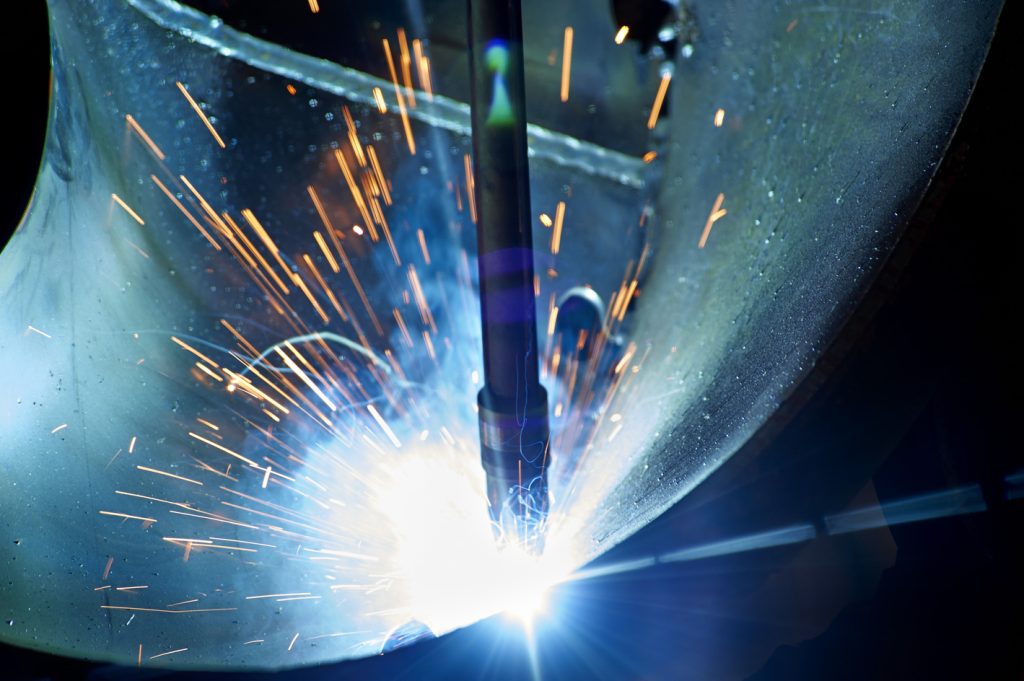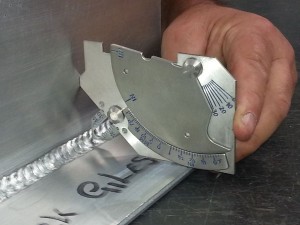Why Select Expert Welding Inspection Gilbert Arizona for Your Jobs?
Why Select Expert Welding Inspection Gilbert Arizona for Your Jobs?
Blog Article
The Influence of Extensive Welding Evaluation on Industry Standards: Promoting Safety And Security, Integrity, and Conformity Across Various Fields
The role of rigorous welding assessment is significantly identified as an important element in improving sector requirements, where conformity, safety, and reliability take precedence throughout varied fields. What changes might we expect in welding methodologies as the need for quality and security intensifies?
Relevance of Welding Assessments
Identifying the crucial duty of welding assessments in preserving quality and safety and security criteria, sector professionals focus on these examinations to guarantee structural integrity. Welding inspections serve as a vital checkpoint in the manufacture process, identifying issues that could endanger the toughness and security of welded frameworks. By systematically analyzing welds, examiners can spot problems such as incomplete penetration, porosity, and splits, which may not be noticeable to the naked eye.
The value of these examinations extends past simple compliance; they are necessary for protecting lives and shielding investments. In essential markets such as building, manufacturing, and aerospace, a single malfunctioning weld can cause tragic failings, causing both monetary loss and human casualties. Implementing strenuous examination methods minimizes these threats and improves general job dependability.
Additionally, constant welding evaluations promote a culture of quality throughout companies, urging welders to comply with best practices and keep high standards in their job. This dedication to high quality not only boosts functional performance but also reinforces the reputation of business within their respective industries. Therefore, welding evaluations are indispensable in advertising safety and security, dependability, and compliance throughout numerous sectors.
Secret Industry Standards and Laws
The structure of welding evaluations is underpinned by a durable collection of market standards and regulations that govern methods across numerous markets. Secret organizations, such as the American Welding Culture (AWS) and the International Organization for Standardization (ISO), establish guidelines that make certain top quality and security in welding operations. AWS D1.1 describes essential requirements for welding steel frameworks, while ISO 3834 defines high quality demands for blend welding.
In addition to these particular standards, market guidelines like the American National Standards Institute (ANSI) and Occupational Safety and Health Administration (OSHA) mandates further enhance compliance by setting safety and security procedures and operational finest practices. These guidelines are vital in markets such as building, manufacturing, and aerospace, where welding integrity is vital.
Additionally, sector-specific criteria, such as those from the American Culture of Mechanical Designers (ASME) for pressure vessels, supply extra layers of examination to make certain that welds fulfill strict safety and performance requirements. Adherence to these criteria not only promotes governing conformity but likewise promotes a culture of high quality and integrity throughout the welding industry, eventually securing public well-being and improving operational effectiveness.

Advantages of Conformity and Integrity
Continually adhering to industry criteria and policies in welding evaluations returns considerable benefits, boosting total dependability and efficiency. The primary benefit is the assurance of quality in bonded joints, which straight adds to the safety of frameworks and equipment. Conformity with established requirements minimizes the danger of failing and disastrous occurrences, thus protecting both human life and valuable possessions.
In addition, organizations that focus on rigorous welding assessments promote a culture of accountability and professionalism and trust. This commitment not just bolsters the reputation of the business however also instills confidence in clients and stakeholders relating to the integrity of product or services. Reputable welding procedures cause minimized prices related to rework, repair work, and prospective lawful liabilities coming from poor workmanship.
Additionally, preserving conformity with industry standards assists in smoother regulatory interactions, as companies can easily show adherence to necessary protocols (Welding Inspection Gilbert Arizona). This positive method can bring about advantageous partnerships and possibilities within the market, along with accessibility to brand-new markets
Challenges in Welding Examination
Browsing the intricacies of welding evaluation provides a myriad of challenges that can hinder compliance with sector requirements. The absence of standard training for this content assessors can result in diverse analyses of assessment requirements, which may jeopardize security and dependability.
Another difficulty exists in the access of sophisticated evaluation tools - Welding Inspection Gilbert Arizona. While innovations such as ultrasonic testing and radiography can boost discovery abilities, their implementation might be restricted by cost or schedule, especially in smaller sized procedures. This variation can result in a reliance on less effective assessment techniques, increasing the threat of unseen defects
Furthermore, the hectic nature of contemporary manufacturing frequently pressures assessors to focus on rate over thoroughness, possibly overlooking crucial defects. Regulatory conformity can be intimidating due to the developing nature of market standards, leaving companies having a hard time to keep up with the newest requirements. These challenges require continuous enhancement in evaluation practices to guarantee the integrity of welded structures across numerous industries.
Future Trends in Welding Practices
Emerging modern technologies and evolving methods are set to transform welding methods in the coming years. Improvements in automation, such as robot welding systems, are gaining traction, boosting accuracy and effectiveness while minimizing human mistake. These systems will certainly not only accelerate production but also facilitate constant quality assurance, attending to several of the difficulties faced in hands-on welding.
Furthermore, the combination of artificial knowledge (AI) and maker knowing into welding processes is poised to reinvent inspection and tracking. Real-time information analytics will allow anticipating upkeep, permitting proactive interventions that minimize downtime and rise safety. Augmented truth (AR) and online fact (VR) modern technologies are becoming important in training welders, offering immersive experiences that improve ability growth without the threats connected with conventional approaches.
Sustainability is additionally a crucial fad, as sectors seek greener techniques. The fostering of eco-friendly materials and methods, together with energy-efficient machinery, will likely become typical. As markets adapt to these modifications, the emphasis will shift towards better compliance with safety and environmental policies, guaranteeing that welding techniques not just satisfy present requirements yet likewise lead the way for a more secure and even more lasting future.

Final Thought
In final thought, rigorous welding inspections considerably enhance industry criteria by making sure safety, dependability, and compliance throughout various industries. As industries proceed to focus on functional integrity, the value of complete inspections will just boost, inevitably profiting businesses More hints and society at big.
The role of rigorous welding assessment is significantly acknowledged as an important component in boosting market requirements, where compliance, security, and integrity take priority throughout diverse markets. Thus, welding examinations are vital in advertising safety, dependability, and compliance throughout various sectors.
Secret establishments, such as the American Welding Society (AWS) and the International Company for Standardization (ISO), develop guidelines that make sure high quality and security in welding operations. AWS D1.1 describes necessary check out here needs for welding steel frameworks, while ISO 3834 defines quality requirements for fusion welding.
In final thought, extensive welding inspections considerably boost sector criteria by guaranteeing safety and security, reliability, and conformity across numerous sectors.
Report this page